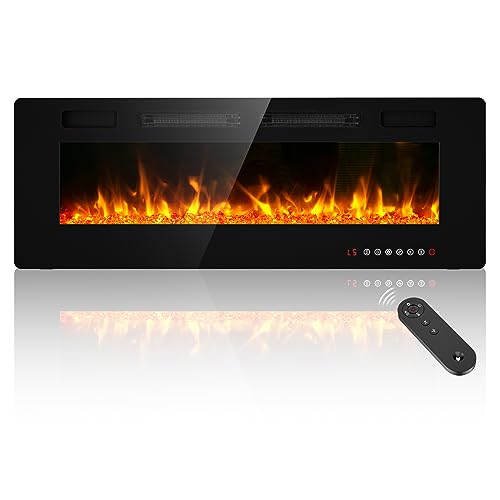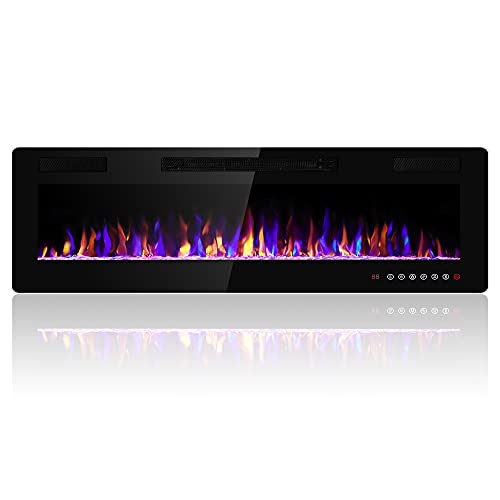Causes of free standing fireplaces electric Fires
Electrical fires are one of the most popular kinds of commercial and residential fires. They are extremely dangerous and can cause a lot of property damage.
 If you notice a burning odor or a constant flickering of lights, hot outlets or switch plates it could be a sign of an electrical fire.
If you notice a burning odor or a constant flickering of lights, hot outlets or switch plates it could be a sign of an electrical fire.
Overheating
While a lot of electrical fires occur as a result of faulty wiring or appliances, sometimes they’re caused by overheating. This can occur when a cord is worn out or the circuit is overloaded. Extension cords that have higher capacity than they’re designed for is a common reason for overheating and electrical fires.
If you notice that your appliance is heating up, switch it off as soon as possible. If you can safely do this without putting at risk your own safety, unplugging the device will reduce its temperature and stop it from causing further damage to your business or home.
It’s important to keep in mind that not all electrical devices are made equally. Appliances that are outdated and older are more prone to overheat than appliances that are newer. It’s a good idea to have older appliances in your house examined by a professional.
Older appliances are more prone to ignite combustible substances around them. It’s because older appliances are not constructed with the same safety measures as newer models.
Electrical fires can also be caused by light fixtures, as well as bulbs for lighting. Using a bulb that’s too powerful for the fixture could cause overheating. Placing items like paper or cloth over light bulbs can be dangerous. Make sure you choose the right size bulbs in your lighting fixtures and lamps. Never cover the light bulb with cloth or paper. These are the most frequent causes of electrical fires at home. These fires can be avoided with regular maintenance, proper care and by making sure your appliances are up to the current safety standards.
Sparks
When electricity sparks it can ignite combustible material quickly. This can result from a variety of causes, including damaged or overheated wires. Often, these fires occur in homes that are more than 20 years old in age and are stuffed with a lot of electrical appliances and equipment. These appliances put lots of strain on the wiring of the house which could result in it getting frayed, worn out or loose over time. These issues can lead to an electrical fire if the homeowner fails to take necessary safety precautions.
Sparks can also be caused by the friction of two hard objects that come into contact. For instance, if you knock something against the surface of a hard object such as a grinding stone or the side of the furnace, a spark is released from the object. Sparks can also be caused by metal-tometal contacts in welding equipment or fireworks. No matter where they come from they all share the same feature: they are red-hot particles that possess a huge amount of energy.
They can quickly ignite if they are thrown near the combustible material, like paper or wood. This is the reason it’s so important to keep flammable items away from your electric wires and outlets.
Many people are unaware that their homes may have outdated wiring which can increase the risk of a fire involving electrical components. Consult a professional electrician regarding the electrical system in your home and the next steps to keeping it current. This is often the most cost-effective option to decrease the chance of an electrical fire at your home. You can also stop sparks from developing by not overloading outlets and by using surge protectors.
Pests
Rodents can cause fires by chewing and tearing at things, such as wires. The gnawing action exposes the metal conductor of the wiring and can cause short circuits that could ignite nearby combustible materials.
If there is a rodent problem The rodents should be eliminated immediately by a professional. In addition, a homeowner should store dry goods in airtight containers, and should not leave food out to attract pests. Trimming trees and shrubs away from the house will also reduce the likelihood of rodents gaining access to the electrical system through vents or windows.
The damage caused by fire by mice or rats in public and commercial buildings can be devastating. Pests can chew the plastic insulation off electrical wires leaving them exposed and posing a fire risk.
It is good to know that many fires are preventable. The trick is to keep them out of the building in the first place, which can be accomplished through regular pest control services.
In multifamily housing, the threat of electrical fires caused by rodents is more widespread. According to the National Apartment Association, rodents are responsible for 20-25 percent of all fires that occur in apartments with no apparent reason.
Landlords are responsible for making sure that their properties are in good condition. This includes regular inspections and maintenance to ensure there are no electrical hazards that could be present. If you’re experiencing an electrical issue like a malfunctioning outlet or flickering lights, contact an electrician in your area to resolve the problem. A qualified lawyer can help you determine whether you have a case against your landlord for failing to provide a safe living environment.
Loose-fitting plugs
When outlets stop working or break out of their sockets, it’s a real pain. Plugs that are loose can cause fires. The loose connections can lead to an arc, which is the primary cause of electrical fires in homes. Although a fire could start at one outlet, it can quickly spread within ceilings and walls.
Plugs and cords are involved in about 20% of home electrical wiring system fires every year. The typical plug comes with an open and neutral blade at one end, a crimp connection connected to the cord wire on the other and a molded plastic body to keep them separate. When you plug a cord into a socket it transmits electricity through the connector/blade to the appliance and then energizes it. Then, when you disconnect the cord, electricity passes back through the connection between the blade and cord and back to the receptacle shutting off power.
There are two possible reasons why your outlets may be loose: the metal contact points are deteriorating or the face of the outlet is loose. If you notice any indications of loose outlets – including buzzing sounds, odd coloration, or scorch marks – it’s best to call an electrician for a professional check.
If your outlets are leaking the first thing you need to do is replace broken wall plates so wires and Flat Electric fireplace other components aren’t exposed. Don’t remove the grounding prong (third prong), which is situated on a plug to make it fit into a two-prong socket. Also, avoid overloading outlets with adapters and excessive cords. Don’t put them under rugs or carpets and don’t staple or nail them to the floor or wall. Also, make sure you use extension cords sparingly and only on a short-term basis. These guidelines will help to avoid electrical fires.
Electrical panels
The electrical panel is at the core of the power system in your home, managing the flow of electricity and dispersing it to circuits. Older panels can be unreliable and can pose a fire hazard. Many outdated panels, such as Federal Pacific flat electric Fireplace (FPE) or Zinsco, have a problem with their design and are susceptible to overheating and causing fires.
These panels may have aluminum wiring and a vulnerable bus bar that could melt and fuse to the metal frame, or they could be prone to short circuits and corrosion. They are nevertheless an hazard to fire due to the failure of their main breaker to block the flow of electrical current in an overload. In this scenario the wires of the panel can overheat and cause ignition of nearby materials, which can cause an electrical fire.
Keep your panel free standing electric fire of obstructions and clean. It will also reduce the risk of a fire caused by dust or insects. An experienced electrician will check your electrical panel to ensure it is safe and in compliance with the latest codes.
It is best to replace your panel when you realize that it has lost its UL certification. Install smoke alarms on each level of your house and train everyone to react in the case of an incident of fire. Make sure you have a designated place to meet outside the home and that everyone knows where to go in case an emergency situation occurs.
When it comes to preventing electric log burner fire fires, the most crucial step is to remain alert. Beware of running electrical cords beneath carpeting or rugs, and be sure that your appliances aren’t running excessive power. Always unplug your appliances before you leave the room or go to sleep. Also, make sure to use a GFCI plug when you are using an extension cable.